SLS & WMS (LAMS) Pos-Doc seminar series
Why?
We want to create a PostDoc only space where you are free to talk about your research in an unencumbered collaboratory manner.
The sessions will be selected by the PostDoc committee, consisting of the Committee Chair, Digital Officer and the PostDoc reps from the departmental committees. Calls will be put out every month for you to propose your own presentation/seminar or even an entire session.
This is run by PostDocs for PostDocs, with no interference. You will have something that is truly yours to use as you see fit. Though technicians and PhD students are welcome and encouraged to participate.
Who?
You! for whatever reason you might need to use a face to face forum
- Are you presenting at a conference and want to practice in front of an audience of your peers?
- Are you presenting a poster and just want to discuss your layout or results in a friendly open manner?
- Do you want to pitch your work and aspirations to attract collaborators to fill skills gaps?
You can propose whatever you want to fill whatever need you have.
Gibbet Hill Seminars
What?
A departmentally sponsored seminar series. Open to all PostDocs to come and present their work.
Where?
Sessions will be held in a seminar rooms and refreshments will be provided.
When?
The first Wednesday of every month, at 12pm
Seminars 2023-24
Dr Jessica Lewis (SLS)
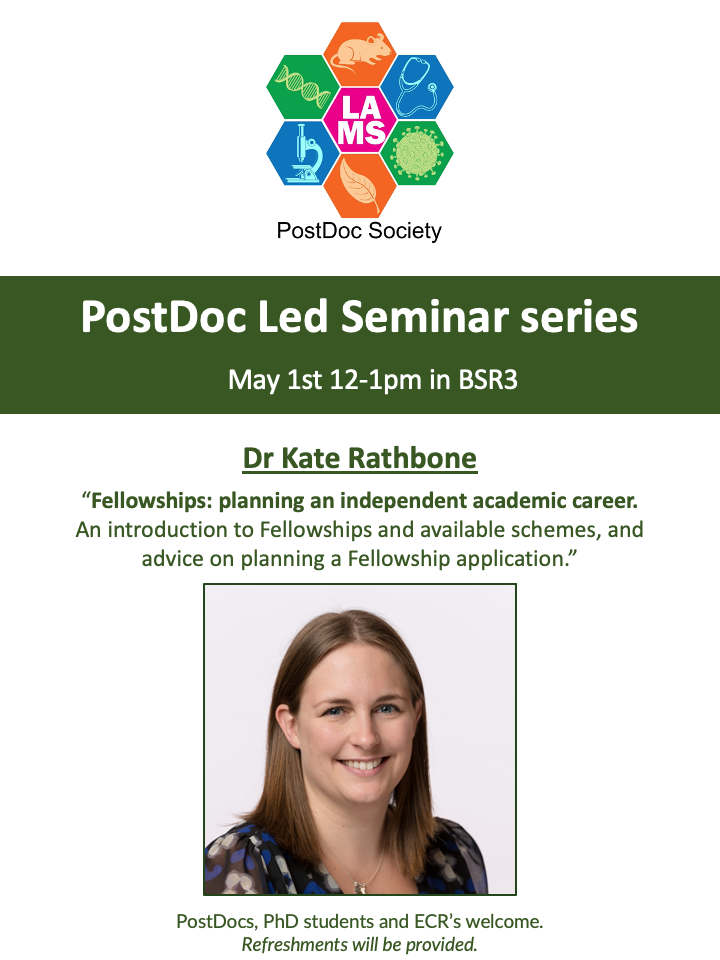
Dr Kate Rathbone
May 1st 12-1pm in BSR3
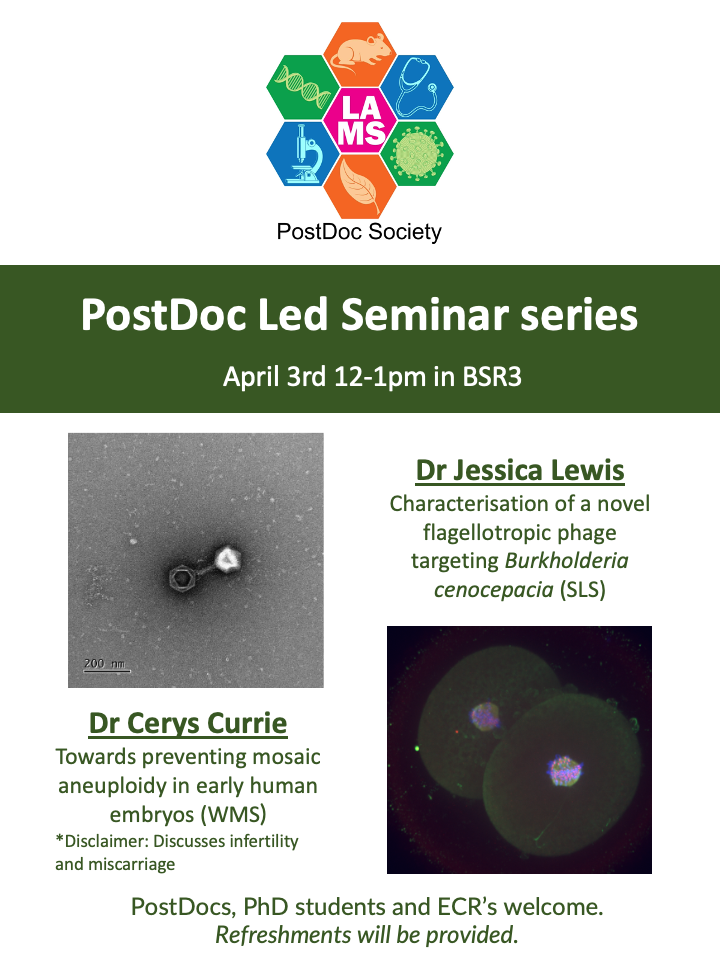
Dr Jessica Lewis (SLS)
&
Dr Cerys Currie (WMS)
April 3rd 12-1pm in BSR3
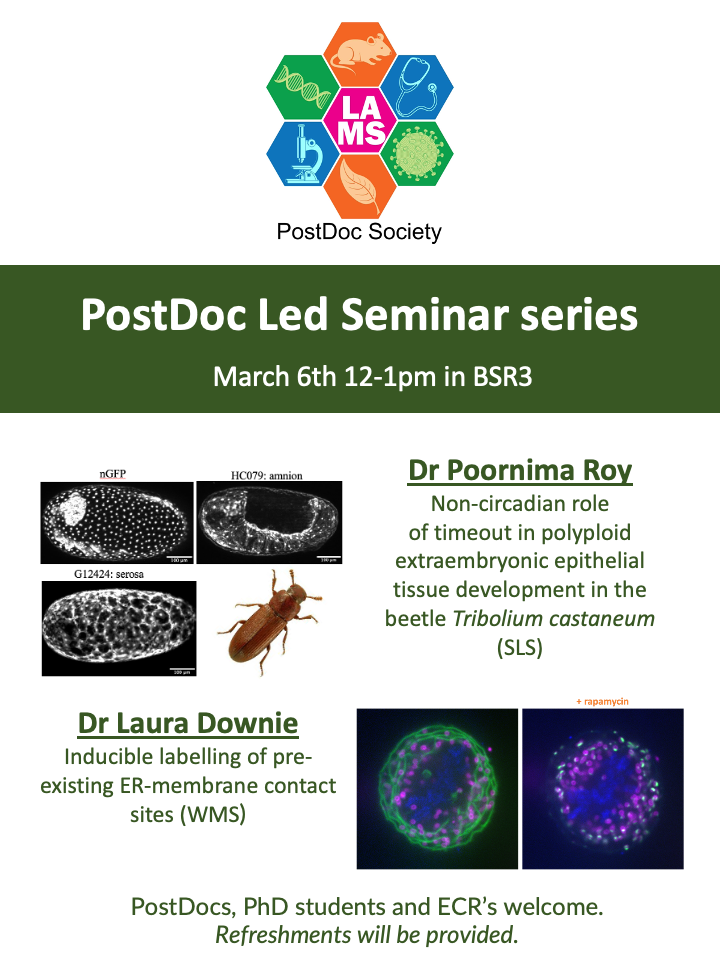
Dr Poornima Roy (SLS)
&
Dr Laura Downie (WMS)
March 6th 12-1pm in BSR3
Get involved
If you would like to present your work, suggest a topic for a session, or if you would like to organise a session yourself, please contact the chairs of the PostDoc society, Sally.Adams@warwick.ac.uk (SLS) or Cerys.Currie@warwick.ac.uk (WMS).
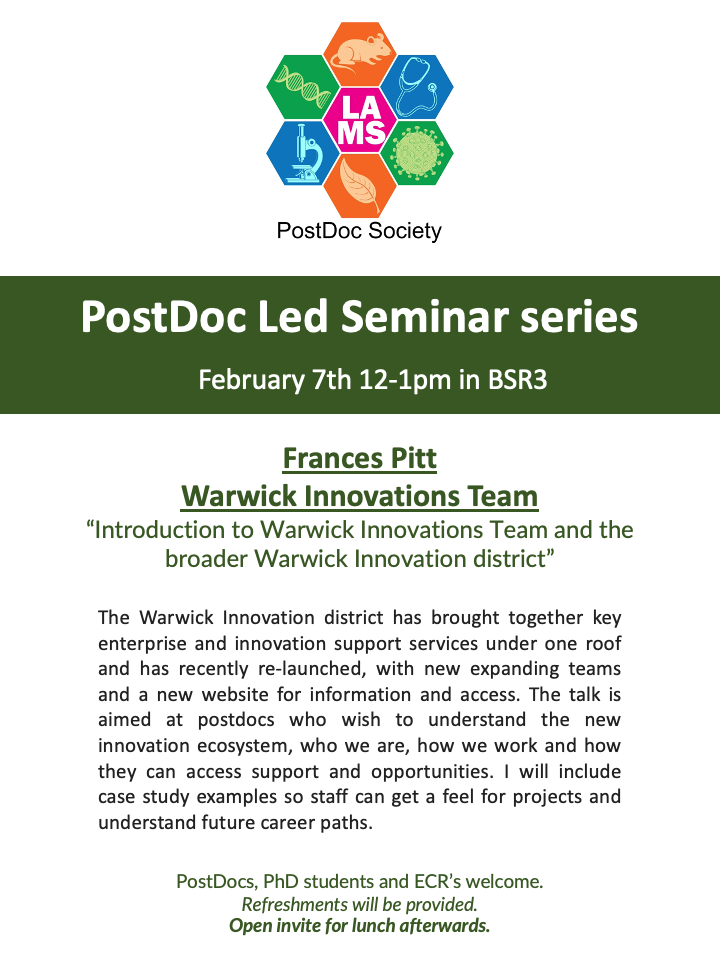
Frances Pitt
Warwick Innovations Team
February 7th 12-1pm in BSR3
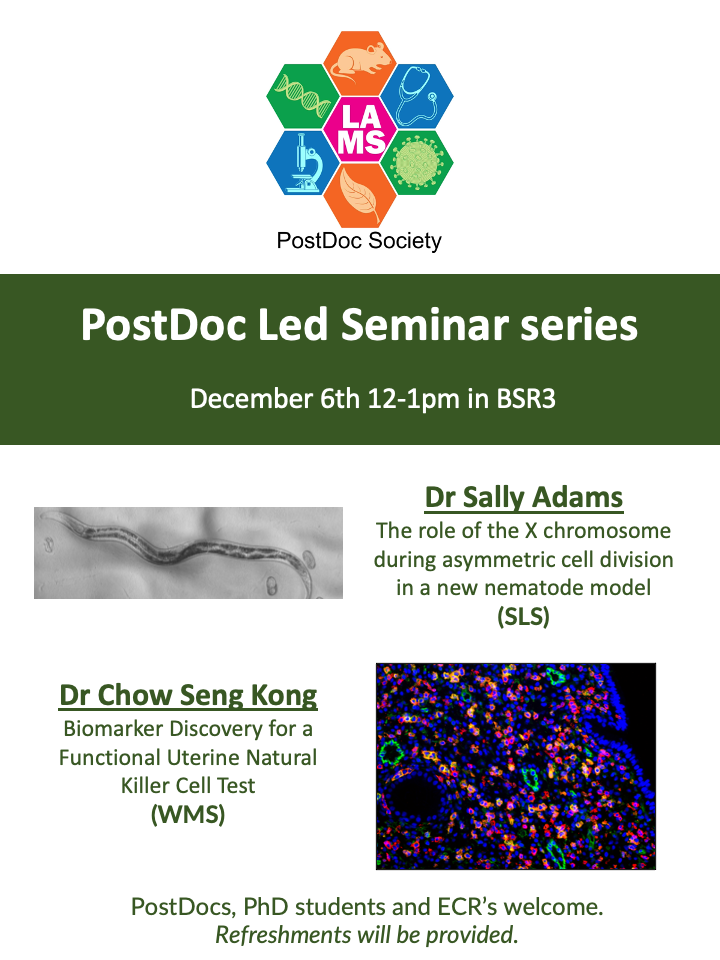
Dr Sally Adams (SLS)
&
Dr Chow Seng Kong (WMS)
December 6th 12-1pm in BSR3
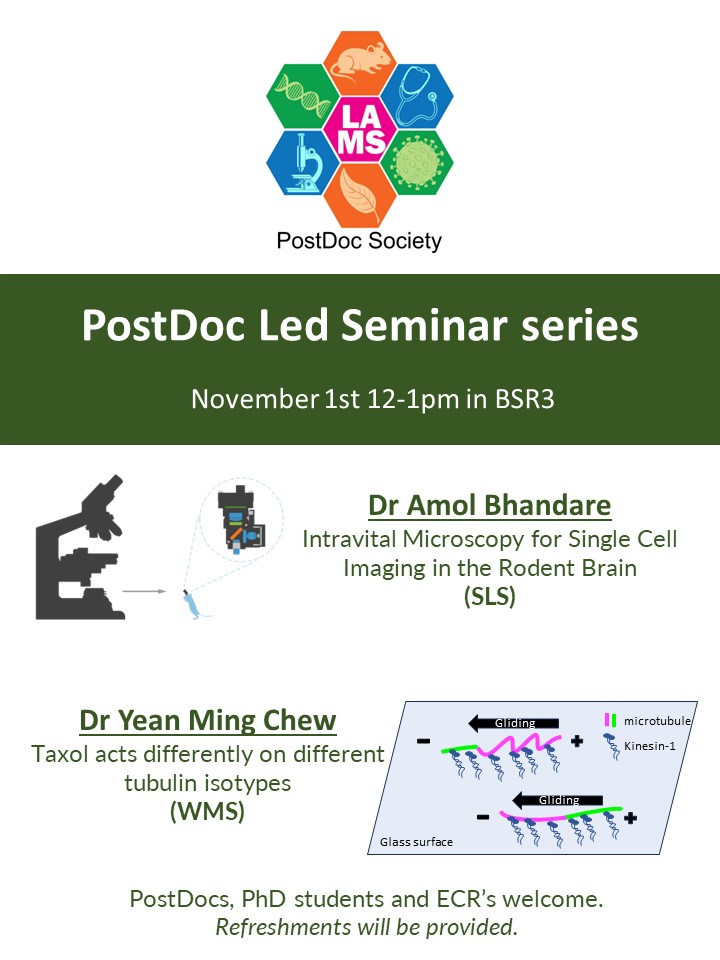
Dr Amol Bhandare (SLS)
&
Dr Yean Ming Chew (WMS)
November 1st 12-1pm in BSR3
Seminars 2022-23
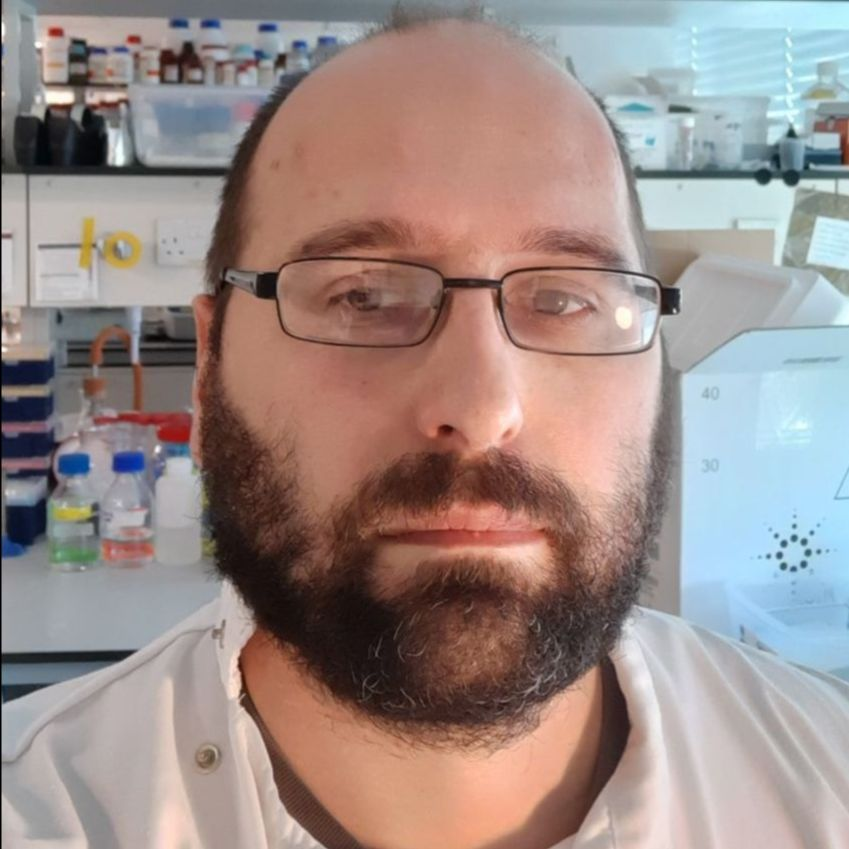
Dr Branko Rihtman
SLS winner of the 2022 FSEM Postdoctoral Prize for his paper entitled “A new family of globally distributed lytic roseophages with unusual deoxythymidine to deoxyuridine substitution”
Dr Rihtman is researching the ways that phages alter the metabolism of infected bacteria via the use of auxiliary metabolic genes they possess in their genomes, and he aims to isolate and characterise novel phages as an alternative to antibiotics.
5th October at 12pm – BSR4
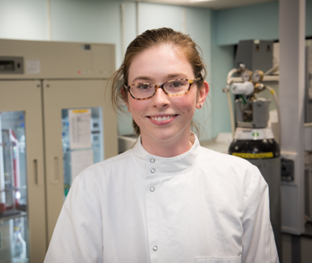
Dr Sarah Smith
Dr Sarah Smith will present her talk entitled 'Capturing the mechanics of the self-assembling cytoplasmic protein, clathrin'
Clathrins are self-assembling cytoplasmic proteins that serve to mediate membrane trafficking. At intracellular membranes, individual clathrin subunits surround the invaginating membrane to form a protein coat that assists in cargo capture and vesicle formation. This process is fundamental to a range of cellular processes including neurotransmission, signal transduction and the regulation of many plasma membrane activities. Aberrations in clathrin-coated vesicle formation have been linked to numerous pathological conditions including, neurodegeneration, heart disease and tumour formation. Dr Smith's research pursues molecular insight into the interactions that clathrins make whilst facilitating coated vesicle formation in the cell.
2nd November at 12pm – GLT2
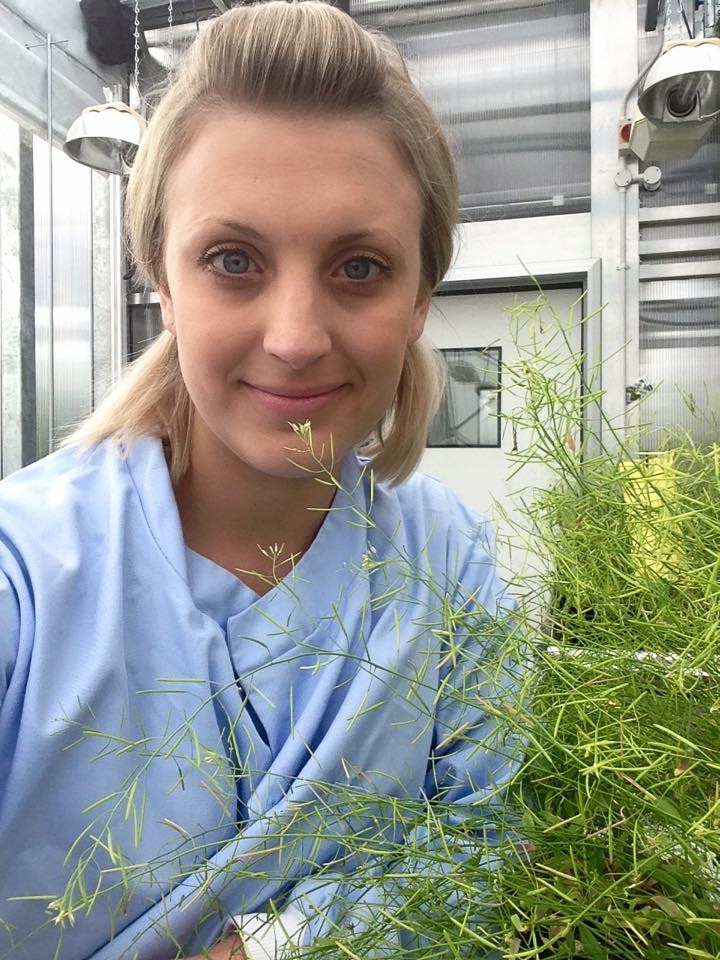
Dr Shannon Greer
Dr Shannon Greer will present her talk entitled 'Xanthomonas threats: mitigating existing, emerging and future threats to UK agriculture'.
The Xanthomonas Threats Consortium (XTC) is part of the UKRI, DEFRA and Scottish Government funded Bacterial Plant Diseases ProgrammeLink opens in a new window. XTC is a cross-institutional project, involving the University of Warwick, University of Exeter and Fera Science Ltd aiming to mitigate existing, emerging and future Xanthomonas threats to UK agriculture. The focus of this project is the black rot pathogen, Xanthomonas campestris pv. campestris (Xcc), the most important bacterial disease of vegetable brassicas worldwide. To address one of the project's major aims, Shannon is screening Brassica diversity sets, developed at the UoW, to identify resistance to Xcc. Alongside this she is involved in the sequencing and analyses of >1000 Xanthomonas isolates from the University’s extensive bacterial collection, to better understand the pathogen. She is also investigating transmission routes and biocontrol agents for Xcc.
7th December at 12pm – BSR1
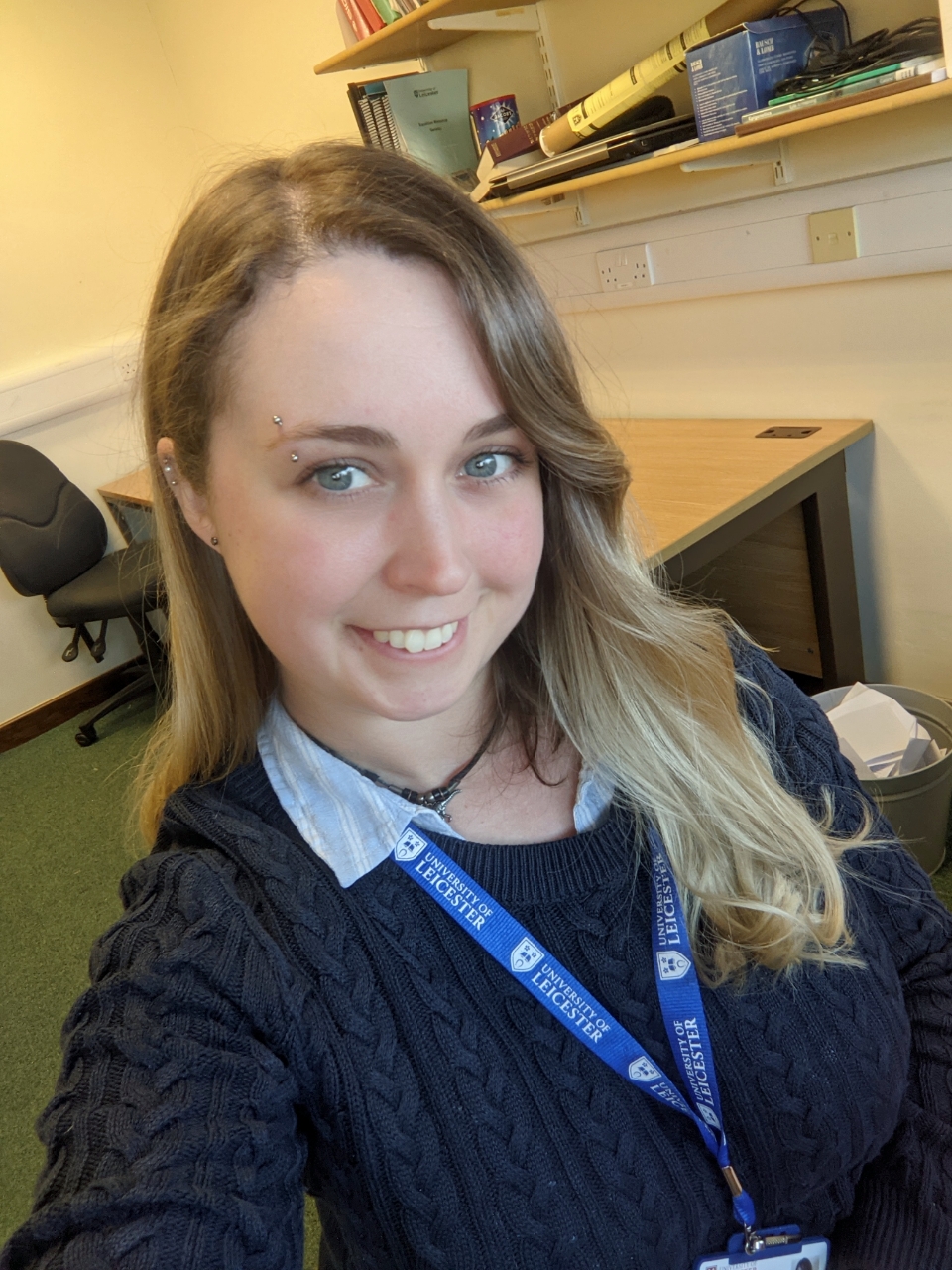
Dr Hollie Marshall
Dr Hollie Marshall will be visiting us from the University of Leicester to present a talk entitled 'A role for epigenomic mechanisms in species adaptation to environmental change'.
Climate change and anthropogenic impact are currently the major drivers of species loss. Understanding how species adapt to rapid environmental change is vital if we are to mitigate these losses. The field of evolution is in the midst of a paradigm shift with researchers acknowledging that molecular mechanisms beyond the stable genome contribute to adaptive processes. Epigenetic modifications are one such mechanism, whereby chemical modifications of the DNA can affect how the underlying genes function and produce phenotypic variation. I work on a variety of non-model species, mostly arthropods (e.g. insects, crustaceans, spiders), to understand how epigenetic mechanisms contribute to evolutionary processes.
11th January at 12pm – a0.42 (Medical School)
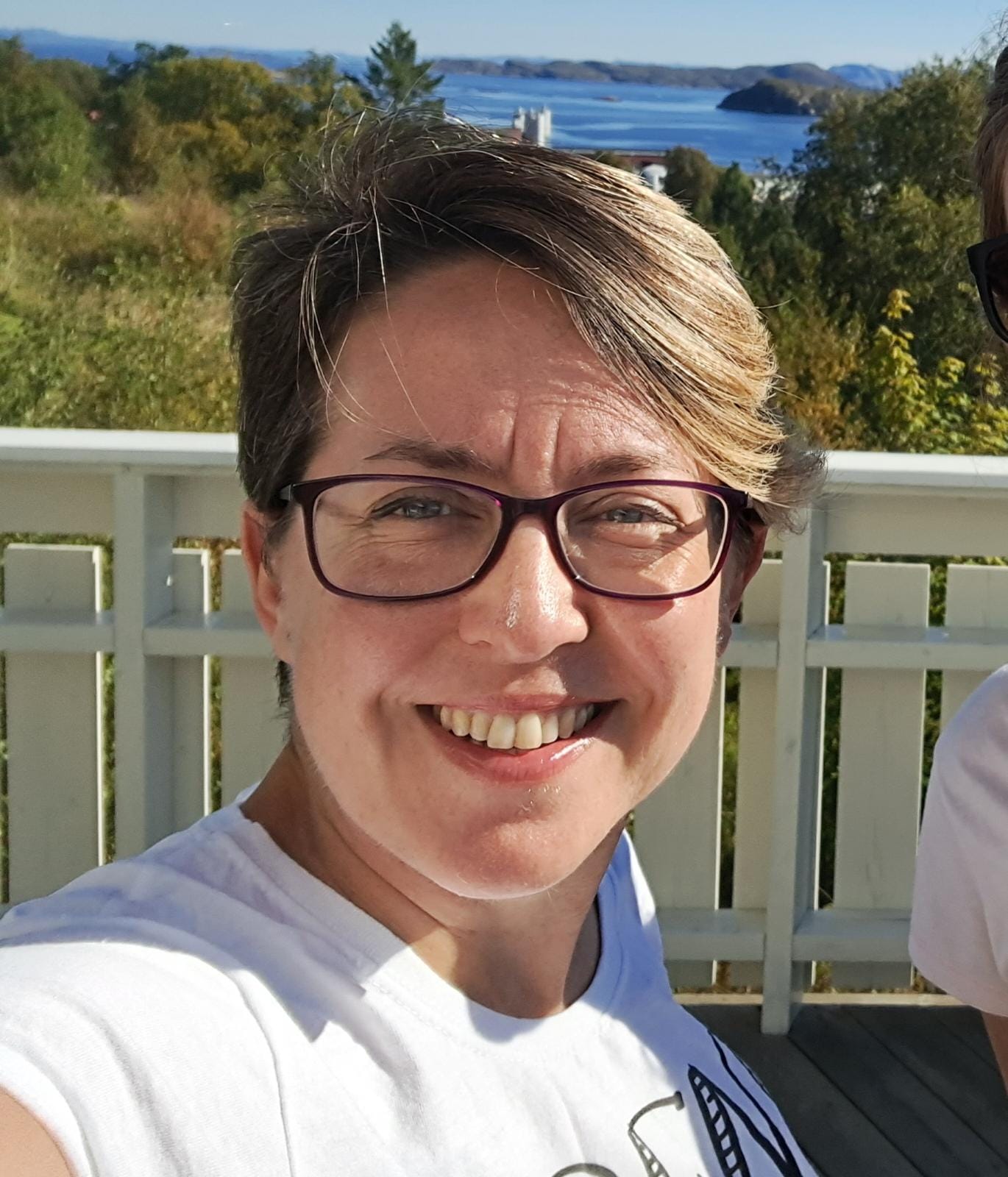
Dr Beatriz Lagunas
Dr Beatriz Lagunas will present her talk entitled 'Rhizobial nitrogen fixation-efficiency shapes endosphere bacterial communities and Medicago truncatula host growth'.
Despite the knowledge that the soil-plant-microbiome nexus is shaped by interactions amongst its members, very little is known about how individual symbioses regulate this shaping. Even less is known about how the agriculturally-important symbiosis of nitrogen-fixing rhizobia with legumes is impacted according to soil type, yet this knowledge is crucial if we are to harness or improve it. We asked how the plant, soil and microbiome are modulated by symbiosis between the model legume Medicago truncatula and different strains of rhizobia whose nitrogen-fixing efficiency varies, in three distinct soil types that differ in nutrient fertility, to examine the role of the soil environment upon the plant-microbe interaction during nodulation
1st February at 12 pm – BSR1
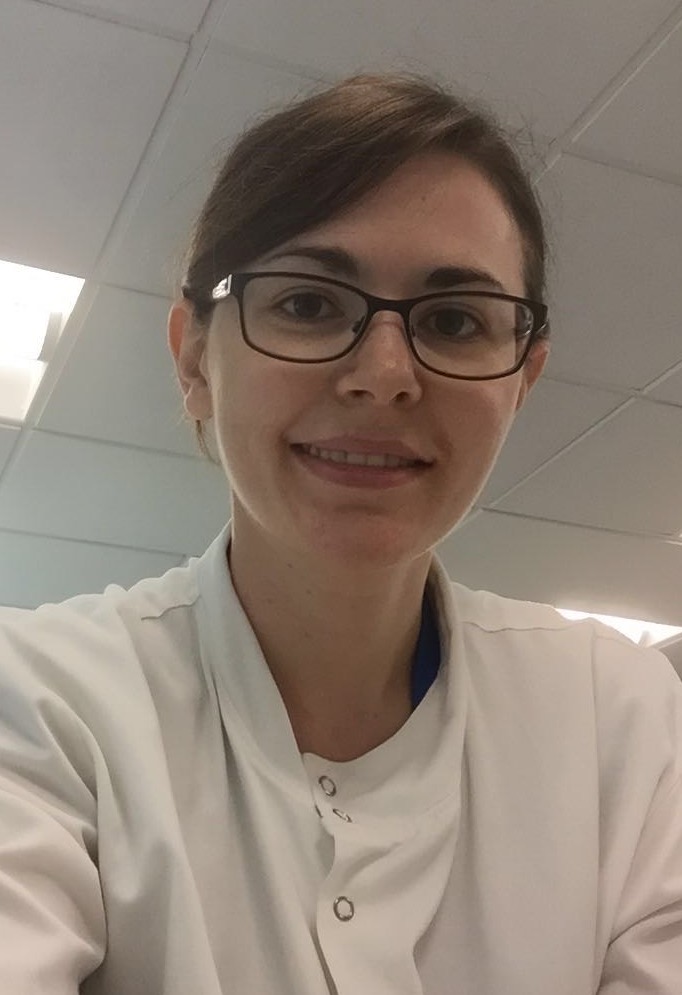
Dr Chiara Borsetto
Dr Chiara Borsetto will present her talk entitled 'Does antibiotic pollution affect microbial resistance in the environment?'
Antimicrobial resistance (AMR) is a global threat to human health and the environment plays an important role as a reservoir of antimicrobial resistance genes (ARGs). The release in the environment of low levels of antibiotics and other pollutants might promote spread and evolution of ARGs across bacteria in the environment, including potential human pathogens. Dr. Borsetto’s research focuses on the use of a combination of multi-omics approaches, in-vitro systems mimicking freshwater environments and citizen science to investigate the effects of antibiotic pollution on the microbiome and resistome of rivers and their implications for human health.
1st February at 12.30 pm – BSR1
Dr Alevtina Mikhaylina
Dr Alevtina Mikhaylina will present a talk entitled 'Blender 3D for scientific illustration'
Blender 3D is powerful and free 3D modelling and visualisation software which is widely used by artists to create production quality 3D graphics and animation. Alevtina, who is a PostDoc in Prof. Dave Scanlan group of marine microbiology, SLS, enjoys modelling in Blender as hobby and was lucky to be able to combine it with her research. Some of her images created in Blender submitted together with research papers, were chosen as journal issue covers. This workshop teaching simple basics of work in Blender for everyone aims to inspire other researchers to use it to create cover worthy scientific illustrations.
1st March at 12 pm – BSR3
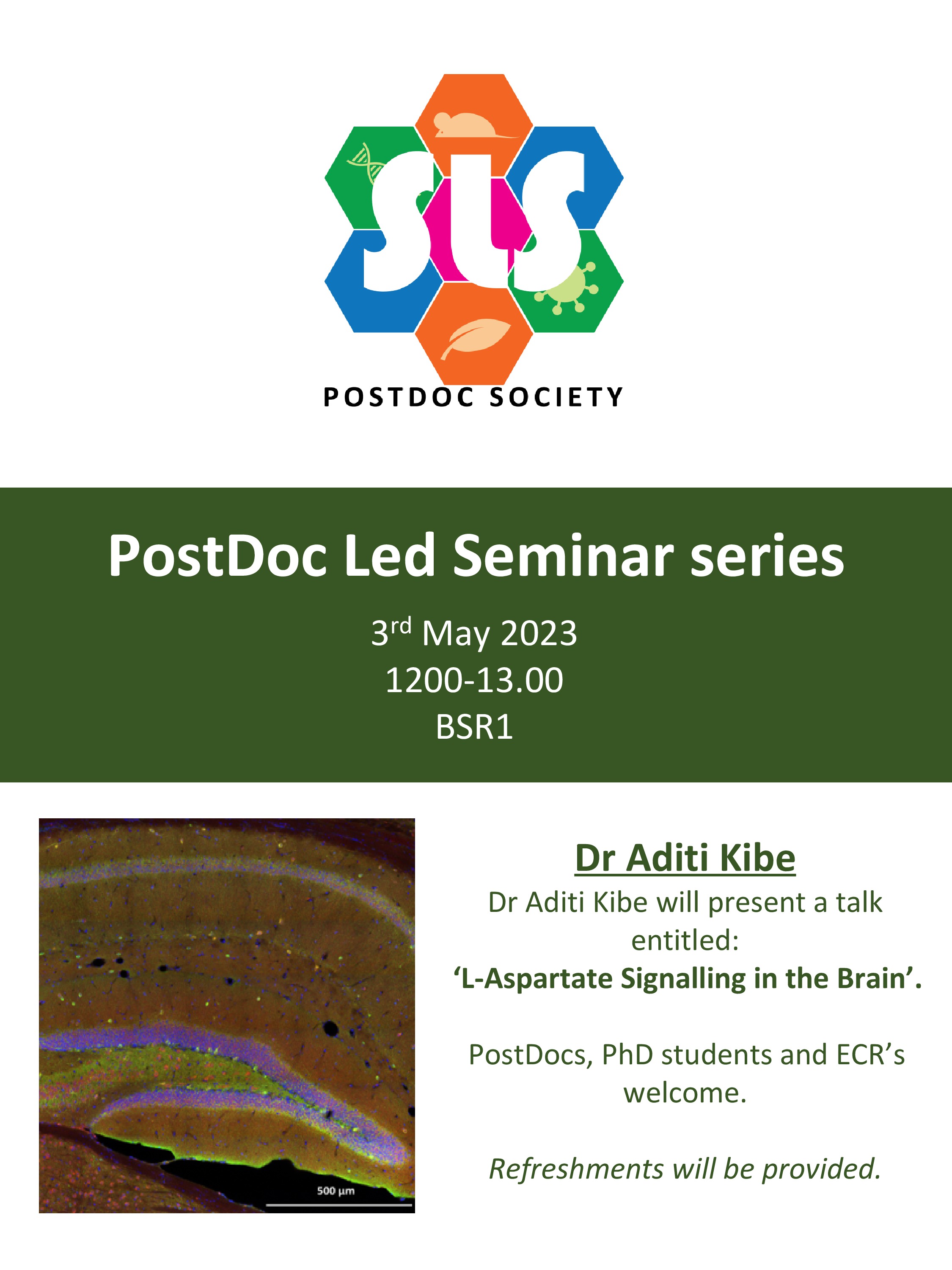
Dr Aditi Kibe will present a talk entitled 'L-Aspartate Signalling in the Brain'.
3rd May at 12 pm – BSR1
